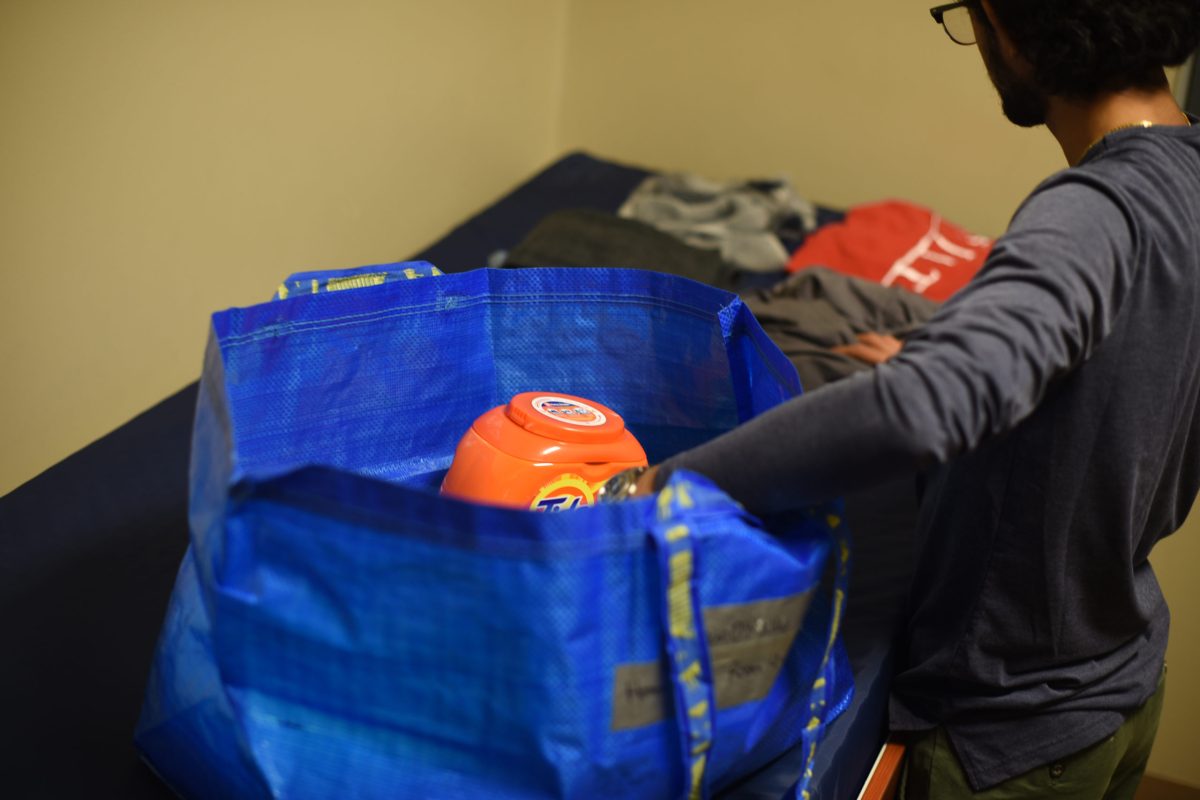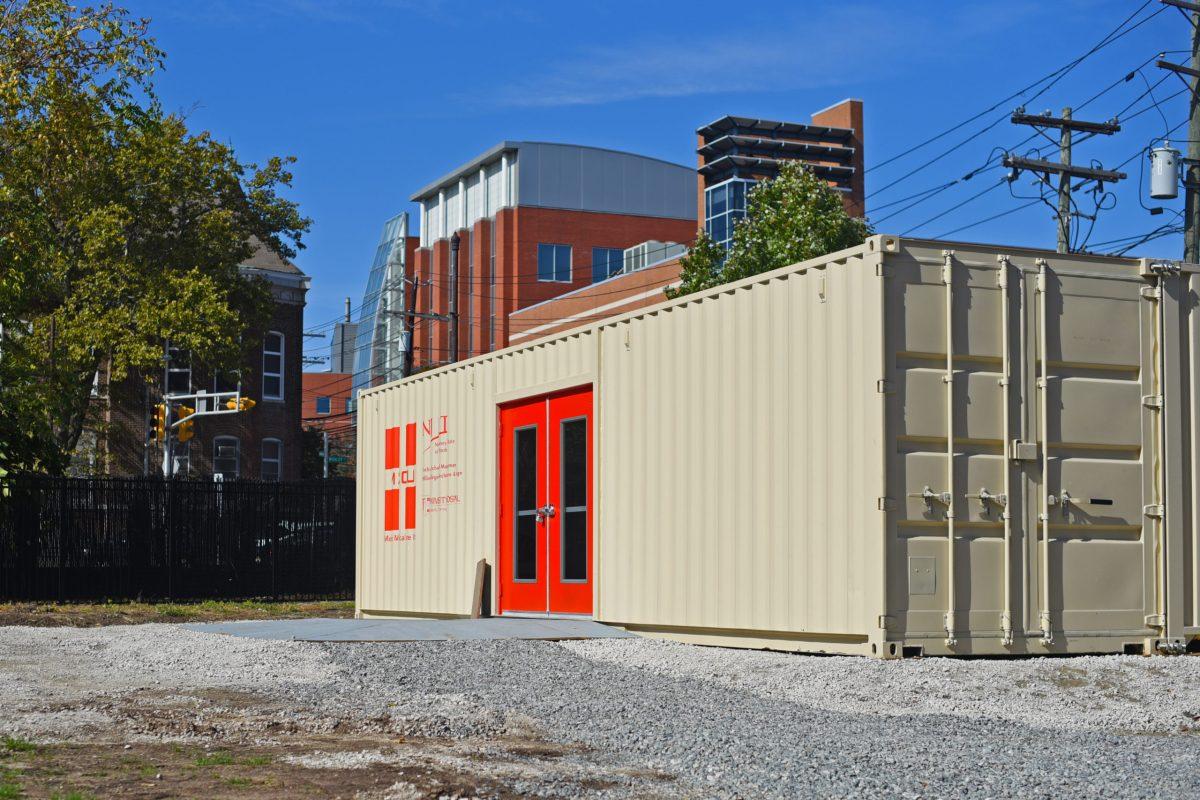Rick:Senate President Kellen, congratulations on the victory. So how do you feel right now as you transition?
Kellen:I started off my Senate career as a student at large, which as you know, is basically a volunteer; you do the kind of work you want to. And it was just, like, a passion that grew for Senate. So even though I’m president, I still feel like I’m the same dedicated, passionate kid that I was my freshman year. It’s a weird transition for sure because I personally don’t feel any different, but everyone sees you a little differently now. So, uh, I think it’s just, you know… definitely maintaining a new level of respect that everyone garners for you. It’s a very large transition from what I was doing before to what I’m doing now, with the huge shoes Mark left behind I’m definitely trying to do my best there.
Rick:So some of the things that he (Mark) had mentioned were, one of the big parts of your platform, to improve financial resources allocated to the clubs. How are you’re trying to make it easier to get funds to clubs?
Kellen: One of the biggest things right now is, we actually increased our single events budget, which is all the money that’s allocated towards clubs, I think about $325,000 total. So this year alone we increased the, in the past it was around 298 [thousand], we had almost a $30,000 increase and we’re hoping next year we can allocate even more.
Rick:What is the single events budget?
Kellen:So essentially Student Senate as a whole has three budgets: operating budget, which is the operation of Senate itself; programming budget, which is for our events or things that Senate does for the community. The last is single events budget, that’s allocated to clubs, all x, y, and z clubs. I’m sure you know the line budgets. The way line budgets work are… you fill out the budget form… and your money’s allocated to you. But you still end up doing reimbursements and that money is taken from your line budget instead of having it taken from a general account. It’s annoying for, I want to say, a lot of organizations because, you know… let’s say a club has a huge food event or a DJ coming in and there’s somebody dropping, you know, a thousand or $1500. It’s not easy for someone to just hand over their credit card and spend that much. I want to work towards having a policy that if a certain cap goes over for an event or a venue, that Senate would pay for it. Until I can work with the current VP of Finance as well as the Finance Committee on Senate to find a way that clubs can have access to their own line budgets. They still have to come to us with the necessary measures and means to make sure everything is appropriately done. But it’s not so much that they are suddenly handing over their own money… and then getting reimbursed two, three weeks later
Rick:I know in the fall you re-did the SAFRB Proposal to redo the fourth floor campus center carpets and furniture as well as basements. Originally that was supposed to be done during the winter break, but it had to get pushed back. What were some of the complications and setbacks that resulted in the delay?
Kellen:When we approve SAFRB, we approve a specific money amount, we’re not approving specific furniture or purchases. We approve that this general proposal is going to be a beneficial idea that’s going to benefit all students on campus. That’s what SAFRAB is. So when we approved, for example, the second floor, all the furniture we paid for, we approved a dollar amount. And with that dollar amount, Student Affairs Committee diligently works with our vendors. Danker is one of the furniture vendors we use, and we work with them to make sure that we get the most from what we’re spending.
Rick:So once the, once the SAFRAB proposal is approved, you’re just approving the general idea. Then there’s the next logistical step of “OK, now that we have our budget, we need to contact our vendors…”
Kellen:We contact our vendors and tell them what we want. They come back to us when we go through five to 10 different types of proposals where they tell us different types of schemes where things would be outlined, that’s why it usually takes a little longer.
Rick:Commuters are still a niche of students [and] are not being as reached out to as they should be. Your thoughts?
Kellen:It’s unfortunate, the commuter population is definitely underrepresented, for sure. Residents take a lot of roles on campus and in organizations. In contrast, commuters have their own lives, they’re working outside of here, maybe they’re taking a lot of classes and they’re going home every day. The commute is a big part of it, which is just something we as residents don’t understand as much. There are governing bodies that look out for residents, commuters don’t have that. There used to be the CARS (commuter assistance and resource services) program a few years ago but it got disbanded. I think my biggest problem as a resident on campus is that I’m either misinformed or I lack feedback from commuters, that’s something I’m working on right away. The first couple weeks for that feedback are critical.
Rick:I’ve heard complaints about SAFRB proposals when it comes to furniture and beautifying spaces. What would you say to people who feel like Senate [is] misspending money when it can be put towards more useful things. What would be your response to that?
Kellen:Those in Student Affairs Committee, we don’t just sit down and be like, “You know what would be a good idea? More furniture”. There’s an entire process. Each year we have three weeks any student can submit a SAFRB proposal. I’d say we spent a good while receiving feedback on them, including public office hours, reaching out to students, departments and administration. Some have been furniture, another was the water bottle filling stations, a lot of the new gym equipment? We bought that. I understand furniture is the easiest to look at but SAFRB is a process. We take a lot of feedback and we pick the ones that garner the most amount of feedback
Rick:How long would you say is the lifespan of a SAFRB proposal from inception to completion?
Kellen:I’d say almost two semesters. So if you did a SAFRB proposal in the fall, it would be completed by the end of spring. That’s how much work and time is put into all these proposals. It’d be a shame to cheat the students out of their money and to do a job that doesn’t deserve justice. So we really do try to do the best for them.
Rick:Last question, what is your mission statement?
Kellen: My overall mission statement would be directed towards the NJIT student body population. I want to make sure that within my time I give them the most amount of resources, support, and ideas that benefit them. Since the time I came to NJIT and the Senate, I’ve seen so many things that have improved on campus. A lot of it stems with working with clubs and organizations. I want to work with all the students at NJIT and make sure that their experience here is better than when they started.











































